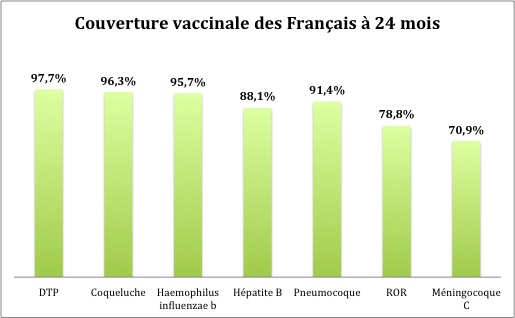The French are not sufficiently vaccinated against measles and meningitis C. A threat to the health of the youngest.

Should mandatory vaccination be abolished or, on the contrary, should it be extended to other diseases? Today, only three vaccines are mandatory (DT-Polio), eight others are recommended. After a citizen consultation initiated by the former Minister of Health, the committee led by Professor Alain Fischer had decided at the beginning of the year in favor of the second solution. A vaccination obligation for eleven diseases during a transitional period of five to ten years. A time deemed necessary to move towards a new vaccine device.
In an opinion issued on February 8, the Council of State had given the Ministry of Health six months to comply with the law. Indeed, the user associations behind the referral contested the fact that the DT-Polio vaccine was in fact pentavalent and not trivalent. An ultimatum that Marisol Touraine left as a legacy to her replacement.
This Friday, in an interview with Parisian, Agnès Buzyn did not shy away from the question. “So we are thinking about making the eleven vaccines compulsory for a limited period, which could be five to ten years,” she said. And the minister listed our shortcomings in terms of vaccination: “24,000 cases of measles since 2008, 10 deaths, 1,500 serious lung infections, 31 encephalitis”.
Last April, Public health France already pointed to shortcomings in vaccination coverage. 79% of young French people are protected against measles. This is largely insufficient. To completely interrupt transmission, 95% of the population would need to be immunized. The specter of the epidemic, however, hangs over France. In eastern France, several outbreaks have been declared since the beginning of the year. The number of patients is three times higher than usual.
The results are even darker in the case of meningitis C. Only 71% of young children are vaccinated against this bacterial disease. With age, the protection rate declines. Infants are therefore not protected by those around them. They are also the first victims of the infection. Between 2011 and 2016, 298 cases were reported among 1-24 year olds. In 20% of cases, meningitis leaves long-term sequelae.

.















